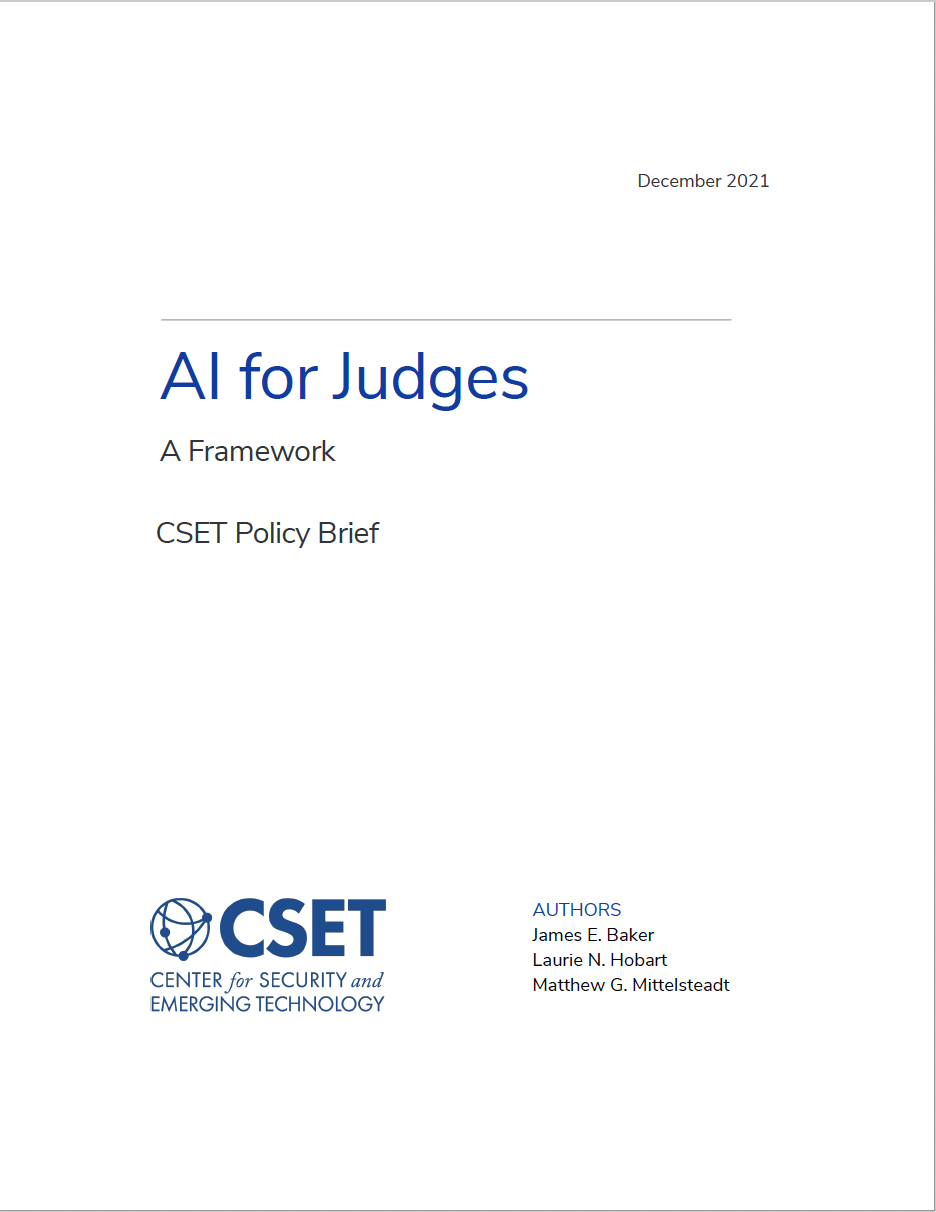Artificial intelligence is a pervasive and persistent part of our lives and will become more so in the future. AI is embedded in shopping algorithms, navigational aids, and search engines. Algorithms drive social media – and, increasingly, vehicles. Diverse fields such as human resources, finance, and medicine all rely on AI. AI detects fraud and trades stock.1 Studies show that certain AI applications identify tumors with greater accuracy than do medical personnel. Generation Z has come of age in the era of algorithms.
As AI is transforming the economy and American society, it will also transform the practice of law and the role of courts in regulating its use. Law firms use AI applications to conduct discovery. At least 75 countries use facial recognition for domestic security and law enforcement purposes.2 AI is used to determine travel patterns, to link suspects with crime scenes, and to populate watch lists. Between 2011 and 2019, the FBI used its facial recognition algorithm to search federal and state data bases, such as visa and license data bases, over 390,000 times.3 AI will also directly and indirectly impact the legal fields of administrative law, contracts, and torts. AI, for example, underpins the advent of smart contracts and new forms of contractual due diligence. Likewise, AI presents new questions about old issues of tort responsibility and liability where AI is used to drive vehicles and make medical diagnoses.
Law rarely, if ever, keeps pace with technology. The legislative and appellate processes simply do not move at the same pace as technological change, and could not do so if they tried. Likewise, scholars and commentators are currently better at asking questions than answering them. As AI applications and cases make their way to court, however, judges do not have the luxury of waiting for answers. As AI applications and cases arise in litigation, judges will confront novel issue after issue. The common law of AI cannot wait. This report is intended to provide a framework for judges to address AI.
In particular, the report considers how AI will impact courts by addressing two question sets.
(1) What role should, will, or might judges play in addressing the use of AI in American society? And, relatedly, how will AI and machine learning impact judicial practice in federal and state courts?
The first section of this paper addresses these questions by considering three purposes of law as well as three judicial roles: judges as evidentiary gatekeepers; judges as constitutional guardians; and judges as AI consumers.
(2) Having identified these roles, what do courts need to know about AI to effectively adjudicate its use by litigants and make informed decisions about whether to use AI as a judicial tool?
The second section addresses these questions by highlighting technical aspects of AI that are likely to play a central role in how AI is adjudicated in courts.
This report is not intended to identify and answer every question that AI might present in a court. There are too many questions to answer. Rather, the goal is to identify some of the questions and challenges with the purpose of:
- encouraging judicial inquiry into AI, including areas of likely litigation focus;
- identifying aspects of AI that should inform how judges shape their decisions and avoid unintended case law effects; and
- suggesting a framework for addressing AI in court.
It is for judges to develop a common law of AI. This report is intended as a place to start the intellectual journey ahead.
Download Full Report
AI for Judges- Darrell M. West and John R. Allen, How AI is Transforming the World, BROOKINGS (Apr. 2018), https://www.brookings.edu/research/how-artificial- intelligence-is-transforming-the-world/.
- Stephen Feldstein, The Global Expansion of AI Surveillance, 1 (Sep. 2019), https://carnegieendowment.org/2019/09/17/global-expansion-of-ai- surveillance-pub-79847; National Security Commission on Artificial Intelligence (NSCAI), INTERIM REPORT 12 (Nov. 2019), https://www.nscai.gov/wp- content/uploads/2021/01/NSCAI-Interim-Report-for-Congress_201911.pdf.
- U.S. Gov’t Accountability Office, GAO-19-579T, Face Recognition Technology: DOJ and FBI Have Taken Some Actions in Response to GAO Recommendations to Ensure Privacy and Accuracy, But Additional Work Remains (June 4, 2019).
